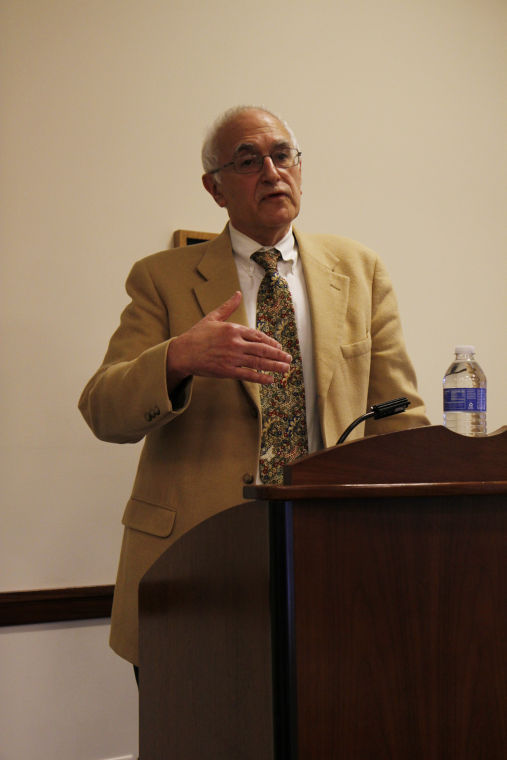Notre Dame professor speaks a NIU
March 19, 2013
Slavery’s role at the Constitutional Convention was the core subject of a Monday presentation by Michael Zuckert, a Notre Dame political science professor.
“Slavery at the Constitutional Convention” focused on governmental stances on slavery prior to its abolishment. Zuckert went into detail on the stances on slavery of two groups, the Neo-Lincolnians and Neo Garrisonians, at the U.S. Constitutional Convention from May to September 1787. The presentation was organized by Adam Seagrave and Robert Brathwaite, assistant political science professors.
“It’s partly associated with a seminar of international association, but really the department of political science is trying to bring out well-regarded and knowledgeable speakers and scholars that have produced or are working on political topics that are in interest of the NIU community,” Brathwaite said.
Brathwaite said their intention was to engage all political science majors and the NIU community in topics that they feel will be of interest to them in the political science field.
“I’m here because my field is political science, and I’m interested in the subject,” said Wayne Duerkes, senior political science major. “I really enjoyed the speaker and his interpretation of the topic.”
According to Zuckert, the Neo-Lincolnians felt the U.S. government was favorable of slavery. Its proponents said government officials who supported the act of slavery were hostile towards slaves. The Neo-Garrisonians felt the government was not in support of slavery. They believed it was a matter of the state, which the government had no control.
”I’m a political science professor with years of experience in the field,” Zuckert said. “My interpretation is based on a more general understanding of federalism.”
Zuckert also introduced the presence of Neo-Madisonians. Proponents of that group felt the Constitution made slavery legal, but also made the practice a non-legitimate act, Zuckert said. He also talked about how the constitution avoided slavery as a whole: The words “slave” and “slavery” were not mentioned in the Constitution. Zuckert said that slavery was legal only because there wasn’t a law against it.
The next seminar on international relations will be at 5 p.m. on April 23 in Barsema Hall.







